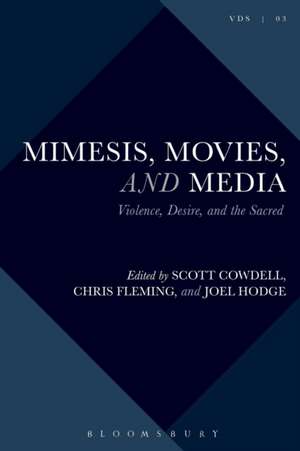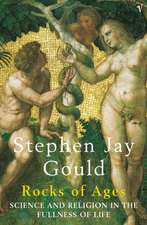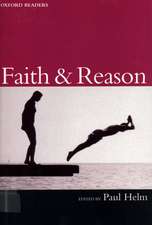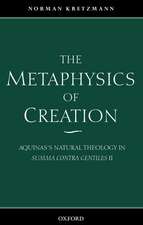Mimesis, Movies, and Media: Violence, Desire, and the Sacred, Volume 3: Violence, Desire, and the Sacred
Editat de Canon Dr Scott Cowdell, Dr. Chris Fleming, Dr. Joel Hodgeen Limba Engleză Paperback – 27 iul 2016
| Toate formatele și edițiile | Preț | Express |
|---|---|---|
| Paperback (1) | 257.12 lei 6-8 săpt. | |
| Bloomsbury Publishing – 27 iul 2016 | 257.12 lei 6-8 săpt. | |
| Hardback (1) | 832.09 lei 6-8 săpt. | |
| Bloomsbury Publishing – 25 mar 2015 | 832.09 lei 6-8 săpt. |
Preț: 257.12 lei
Preț vechi: 330.99 lei
-22% Nou
Puncte Express: 386
Preț estimativ în valută:
49.20€ • 51.51$ • 40.71£
49.20€ • 51.51$ • 40.71£
Carte tipărită la comandă
Livrare economică 05-19 aprilie
Preluare comenzi: 021 569.72.76
Specificații
ISBN-13: 9781501324376
ISBN-10: 1501324373
Pagini: 256
Dimensiuni: 152 x 229 x 13 mm
Greutate: 0.35 kg
Ediția:NIPPOD
Editura: Bloomsbury Publishing
Colecția Bloomsbury Academic
Seria Violence, Desire, and the Sacred
Locul publicării:New York, United States
ISBN-10: 1501324373
Pagini: 256
Dimensiuni: 152 x 229 x 13 mm
Greutate: 0.35 kg
Ediția:NIPPOD
Editura: Bloomsbury Publishing
Colecția Bloomsbury Academic
Seria Violence, Desire, and the Sacred
Locul publicării:New York, United States
Caracteristici
First-rate cast of international scholars, assembled by the Australian Girard Seminar
Notă biografică
Scott Cowdell is Research Associate Professor in Public and Contextual Theology at Charles Sturt University, Canberra, Australia, and Canon Theologian of the Canberra-Goulburn Anglican Diocese. He is Founding President of the Australian Girard Seminar. Chris Fleming is Senior Lecturer in Philosophy and Anthropology, School of Humanities and Languages, the University of Western Sydney, Australia. His is the author of Violence and Mimesis (2004) and is Vice-President of the Australian Girard Seminar. Joel Hodge is Lecturer in Systematic Theology, School of Theology, Australian Catholic University, Australia. He is the author of Resisting Violence and Victimisation: Christian Faith and Solidarity in East Timor (2012) and is Treasurer and Secretary of the Australian Girard Seminar.
Cuprins
ContributorsIntroductionPart 1: Media and Representation1. On the One MediumEric Gans (University of California, Los Angeles)2. The Scapegoat Mechanism and the Media: Beyond the Folk Devil ParadigmJohn O'Carroll (Charles Sturt University) 3. The Apocalypse Will Not Be TelevisedChris Fleming (University of Western Sydney)Part 2: Film4. Mirrors of Nature: Artificial Agents in real life and virtual worldsPaul Dumouchel (Graduate School of Core Ethics and Frontier Sciences, Ritsumeikan University, Japan)5. Superheroes, Scapegoats and Saviours: Mimesis, Sacred Violence, and the Redemptive Vision of The Dark KnightJoel Hodge (Australian Catholic University)6. Sanctified Victimage on Page and Screen: The Hunger Games as Prophetic MediaDebra E. MacDonald (University of Auckland)7. The Mimetic E-Motion: From The Matrix to AvatarNidesh Lawtoo (John Hopkins University)8. Apocalypse of the Therapeutic: The Cabin in the Woods and the Death of Mimetic DesirePeter Paik (University of Milwaukee)9. Eyes Wide Shut: Mimesis and Historical Memory in Stanley Kubrick's The ShiningDavid Humbert (Thorneloe College, Laurentian University)10. Against Romantic Love: Mimeticism and Satire in Woody Allen's Vicky, Cristina, Barcelona, You Will Meet a Tall Dark Stranger, and To Rome with LoveScott Cowdell (Charles Sturt University)11. A Beautiful Crisis? Ang Lee's Film Adaptation of The Ice StormCarly Osborn (University of Adelaide)12. Cowboy Metaphysics, the Virtuous-Enough Cowboy, and Mimetic Desire in Stephen Fears' The Hi-Lo CountryThomas Ryba (Purdue University/University of Notre Dame)Section 3: Television13. The Self in Crisis: Watching Mad Men and Homeland with Girard and Hegel Paolo Diego Bubbio (University of Western Sydney)14. Media, Murder and Memoir: Girardian Baroque in Robert Drewe's The Shark NetRosamund Dalziell (Charles Sturt University)15. Conversion in DexterMatthew John Paul Tan (De Paul University) and Joel Hodge (Australian Catholic University)Appendix: René Girard at a GlanceGlossary of Key Girardian TermsFurther ReadingIndex
Recenzii
An engaging, illuminating exploration of how mimetic theory is reflected in popular media ... I would recommend Mimesis, Media, and Movies as an introduction to Girard's thought, especially with undergraduate students who may find critical, academic analysis of popular media engaging and illuminating.
A theater professor once said that Girard's book on Shakespeare was head-and-shoulders more insightful than anything else she had ever read on the playwright. This collection of superb essays takes the powerful insights of Girard's mimetic theory and applies them to the contemporary analogs of Shakespeare: films, television shows, and popular literature. Girard himself says very little along these lines, which leaves the field open for scholars to creatively apply his framework-confirming it, advancing it, and modifying it as appropriate to the cultural artifacts under consideration. Given that Girard's scholarly efforts arose primarily out of his study of literature, this extension of his project is not only justified, it is in fact necessary to enable the scholarly world to grasp more clearly the scope and importance of his research program. This program is not an abstract, ivory tower, exercise, but an effort to understand the world we live in.
In addition to their own contributions, the editors of this volume have assembled an opulent menu of essays on every aspect of contemporary media, from TV series to the Internet, from film to 'faits divers.' Our communication culture's romance with violence and the pathologies that fuel it are widely and wisely and deeply explored.
A theater professor once said that Girard's book on Shakespeare was head-and-shoulders more insightful than anything else she had ever read on the playwright. This collection of superb essays takes the powerful insights of Girard's mimetic theory and applies them to the contemporary analogs of Shakespeare: films, television shows, and popular literature. Girard himself says very little along these lines, which leaves the field open for scholars to creatively apply his framework-confirming it, advancing it, and modifying it as appropriate to the cultural artifacts under consideration. Given that Girard's scholarly efforts arose primarily out of his study of literature, this extension of his project is not only justified, it is in fact necessary to enable the scholarly world to grasp more clearly the scope and importance of his research program. This program is not an abstract, ivory tower, exercise, but an effort to understand the world we live in.
In addition to their own contributions, the editors of this volume have assembled an opulent menu of essays on every aspect of contemporary media, from TV series to the Internet, from film to 'faits divers.' Our communication culture's romance with violence and the pathologies that fuel it are widely and wisely and deeply explored.


































